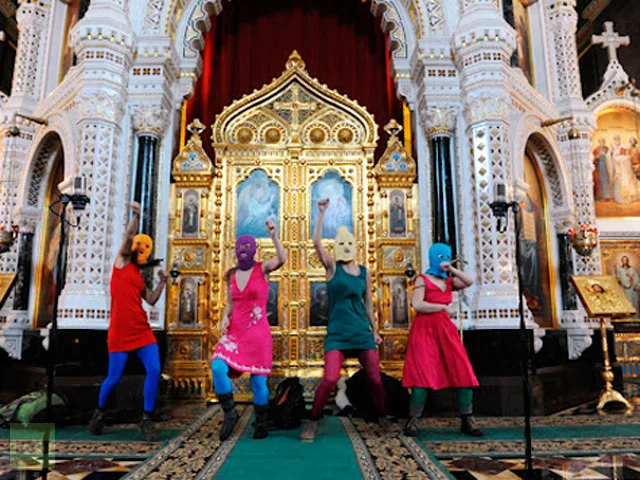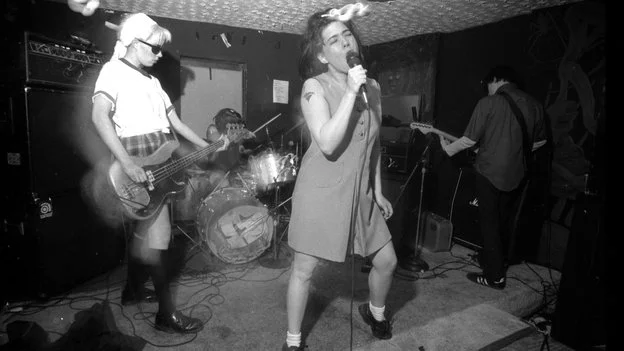Better rephrase that, I am not exactly "being killed" by an American writer, but I'm reading his newest collection of short stories (a lucky thirteen) entitled The Fun Parts (yes, likely it's ironic, dig?) and I find myself nearly doubled over with semi-embarrassed mirth. That is, the stories feature incredibly well-wrought prose and awkward, horrifying yet hilarious situations: a sarcastic male doula (or, "doulo"), a deranged dungeon and dragons game, a troubled poet working in early childcare, men reminiscing about their teenage shotputting days, a Jewish dance teacher in recovery who spends time with a Holocaust denier: maybe not tempting as premises, but they unfold into weirdly unexpected but very human, and richly strange encounters and moments. Lipsyte's 2010 novel The Ask was an inspired comedic take on the plight of the over-educated, under-employed folk of recent years, but he is dark, man, dark! Same goes for his excellent first collection of stories Venus Drive. The author himself is pretty successful these days, teaching in a prestigious university in New York and gaining more and more critical acclaim, but don't let that stop you, he's very much worth checking out. You can read an interview with Lipsyte in Bookforum here and I've posted a pretty superficial but short clip of Lipsyte on a Brooklyn chat show below. Many lengthier interviews posted around the interwebs as well such as Michael Silverblatt's fine radio one on his KCRW program Bookworm.
Shortly after I arrived in New Zealand, I was teaching one of my classes in Critical Studies whereupon an unassuming young man got up to present his thoughts on the topic of Russ Meyer's vintage B-movie Faster, Pussycat! Kill! Kill! one of my favorites but a long way from some of the more sedate art historical offerings in the seminar room that afternoon. I recall a couple of other students being rather appalled at the impolitic qualities of Meyer's buxom heroines racing around in cars and acting rather devilish on the whole. Fast forward and the presenter in question Mr. Daniel Boobyer has become one of Wellington's most intriguing independent musicians with a vinyl release party at Death Ray Records coming up this weekend in Newtown.
According to Death Ray's post: "Another in store, this time album release for Daniel Boobyer his new vinyl LP in store now called "Crazy Eyes," an impressive selection of 33.25rpm ghost blues, singer song writing with beats and boxing. Daniel will be performing his charming one man blues with loops on Sunday the 26th of Jan from 2pm. His first album "Time Killed the Clock" was one of Evil Genius favourites. His new album "Crazy Eyes" won't disappoint. "Crazy Eyes" by Daniel Boobyer strictly on vinyl with download for now only at Death Ray. Shit we love the heck out of independent NZ vinyl releases."
You can check out (and support) Dan's music at: http://danielboobyer.com/
My book review of the catalogue on the Wellington Media Collective published last year by Victoria University Press, subsequent to a major exhibition at the Adam Art Gallery has just been posted on EyeContact. As I stated in my introductory paragraph:
"While reading the richly detailed and illustrated retrospective compilation of the Wellington Media Collective‘s activist graphics, mainly consisting of screen-printed posters, handbills, and flyers, I recalled George Orwell’s statement that “all art is propaganda” along with the aphorism of Marshall McLuhan that “art is anything you can get away with.” Both of these came to mind as for two decades it seems that the Collective embodied the lively and irreverent spirit of both these rather tendentious but rousing claims...."
Maria Alyokhina and Nadezhda Tolokonnikova, members of the feminist Russian activist collective Pussy Riot were released from prison "early" just before Christmas. Their unjust imprisonment for public performances protesting the actions of the Russian government have gained much international attention especially via a widely screened documentary on their work. You can see pictures of them taken after their release here (courtesy Seattle Post Intelligencer) and I've posted the trailer for the must-see film below. (note: if in NZ the good folks at AroVideo just obtained a coupla rental copies.) You also can read an article from Slate.com on their decision to work on drawing attention to the plight of those imprisoned in Russia.
December saw the reissue of The Velvet Underground's landmark album White Light/White Heat. Big news was the inclusion of a rare 1967 song "I'm not a young man anymore" which you can listen to here (along with a tracklist of the new package. If you like the "noisy" Velvets period with John Cale, this was the last stop before the Velvets morphed into a bit more of a softer, but almost as weird rock and roll ensemble. Everything gets reissued to rob record geek cash these days in so-called dee-luxe packages, but at some point you could do far worse than to invest in some of this superior cacophony. You can read music critic David Fricke's "behind the scenes" historical take on the album here.
I was reminded by a short interview with the late performance artist, writer, and actor Spalding Gray's widow and daughter just posted on npr.org that it's been ten years since his disappearance. Gray had been battling depression and his body was found in the East River days after he went missing. Gray’s neurotic but ever-searching, frequently insightful yet rambling spoken narratives hearkened back to the American oral tradition and such figures as Mark Twain. Gray’s earliest works included being interviewed by the audience such that a wilful spontaneity and improvisatory aspects could be retained. Moreover, the responses from “Spalding Gray” could either be read as coming from a character or the actor himself. In his “Short History of American Theater” the set up developed a little further into the shuffling of titles of plays in which Gray had been involved, which the performer would proceed to discuss, extrapolate, and verbally riff upon. But Gray’s work also had a foundational moment in the attempt to make sense of his early life in suburban Rhode Island and the suicide of his mother during his teenage years. Mortality, interruption, failure, guilt, seeking love and understanding: these are among the paramount themes of Gray’s practice. Gray, who had been a member of the experimental theater company The Wooster Group moved into his monologues from the group’s avowed interest in bridging the art/life divide and more specifically the difference between a “theatrical production” and a more experimental postmodern event which dissected the very terms under which it functioned. The ways this occurred included: examining the bleed over between stage and audience, actor and role, recorded time and live performance. Below I've posted some Spalding links, including a vintage documentary A Life in Progress (1987), and one of his filmed performances, Gray's Anatomy (1996) For more info see: http://www.spaldinggray.com/
Part One of a documentary about Spalding Gray by Robby Henson. Music by Pat Irwin. Produced by Cecilia Roque. circa 1987. Features Sex and Death to Age 14 and A Personal History of American Theater. Brattle Theater. Performance Art.
Many years ago a bunch of audio cassettes were stolen out of my beat-up Ford station wagon while parked in a residential section of Queens, New York. After I'd realized this probably the worst blow was losing some tapes handmade (as was his practice of DIY production) by the cult figure Daniel Johnston. Both a musician and a visual artist, Johnston's become a rather legendary personification of a certain childlike, idiosyncratic indie ethos, despite the fact that he's had massive difficulties with mental and physical health over the years. Johnston emerged to a national audience in the US with a 1980s appearance on an MTV visit to Austin, TX, and the riveting, award-winning 2005 documentary The Devil and Daniel Johnston helped create an upsurge in his popularity among younger hipsters. Johnston is becoming almost ubiquitous on the internet, as his intense, raw music gains more international devotees. In tribute to Johnston, still alive thank goodness but unfortunately never looking especially well these days, here's a glimpse of the 1985 Johnston singing "I Live my Broken Dreams," a 2007 clip from the "Black Cab Sessions," and Johnston onstage with the Swell Season and a children's choir at Austin City Limits singing (one of my favorite of his songs) "Life in Vain." FYI many of Johnston's early cassettes like the one I mentioned above can be found streaming on YouTube these days. Very much recommended! For more on Johnston, see: http://www.hihowareyou.com/
I highly recommend a captivating and energetic documentary on Kathleen Hanna, pioneer of the Riot Grrrl movement and singer for the bands Bikini KIll and Le Tigre. The film is an effective portrait of the groundbreaking fringe punk scenes involving strong women, such as Hanna and her bandmates who were inspired by earlier Feminist activism and innovative figures such as writer Kathy Acker who counseled the young Hanna to stop doing spoken word performances and start a band. Hanna's voice in conversation is low-key, funny, and candid, but on stage incredibly powerful, dynamic and enchantingly listenable as with the best pop music. A host of musicians are interviewed including Carrie Brownstein, Joan Jett, and Kim Gordon. Hanna effectively retired for several years due to the devastating effects of Lyme disease, but has been more recently working again with her new band The Julie Ruin. For more on the film see: http://www.thepunksinger.com/ Trailer posted below as well as some vintage Bikini Kill sounds.
William Eggleston's black and white video Stranded in Canton which draws upon his tapes made in Memphis, Tennessee in the early 1970s is currently on view as part of the exhibition entitled South of no North: Laurence Aberhart, William Eggleston, Noel McKenna at the Wellington City Gallery through March 9. The show travelled here from the Museum of Contemporary Art Australia. I will be reviewing it very soon but wanted to recommend this vibrant and interesting show. Stranded in Canton features a lot of important musicians including the blues singer Furry Lewis, record producer Jim Dickinson, and Alex Chilton, who was finished with the cult band Big Star and in the midst of his so-called "lost decade" by then. Here he sings "My Rival," which was one of the songs on the chaotic, weird, and wonderful Like Flies on Sherbert LP.
I would imagine I'm probably not the only person who feels that the comedian Louis CK has done a fantastic job of ripping out the basic content dancing around my own head and making it into gloriously well-crafted sketches. Well of course not me per se, but a specific generational demographic of middle aged geezers with lots of kids and lots of self-doubt. The show Louie is an unusual thing, incorporating a manic surreal sensibility with many aspects that seem very grounded in the mundane shared business of getting along in the world.















